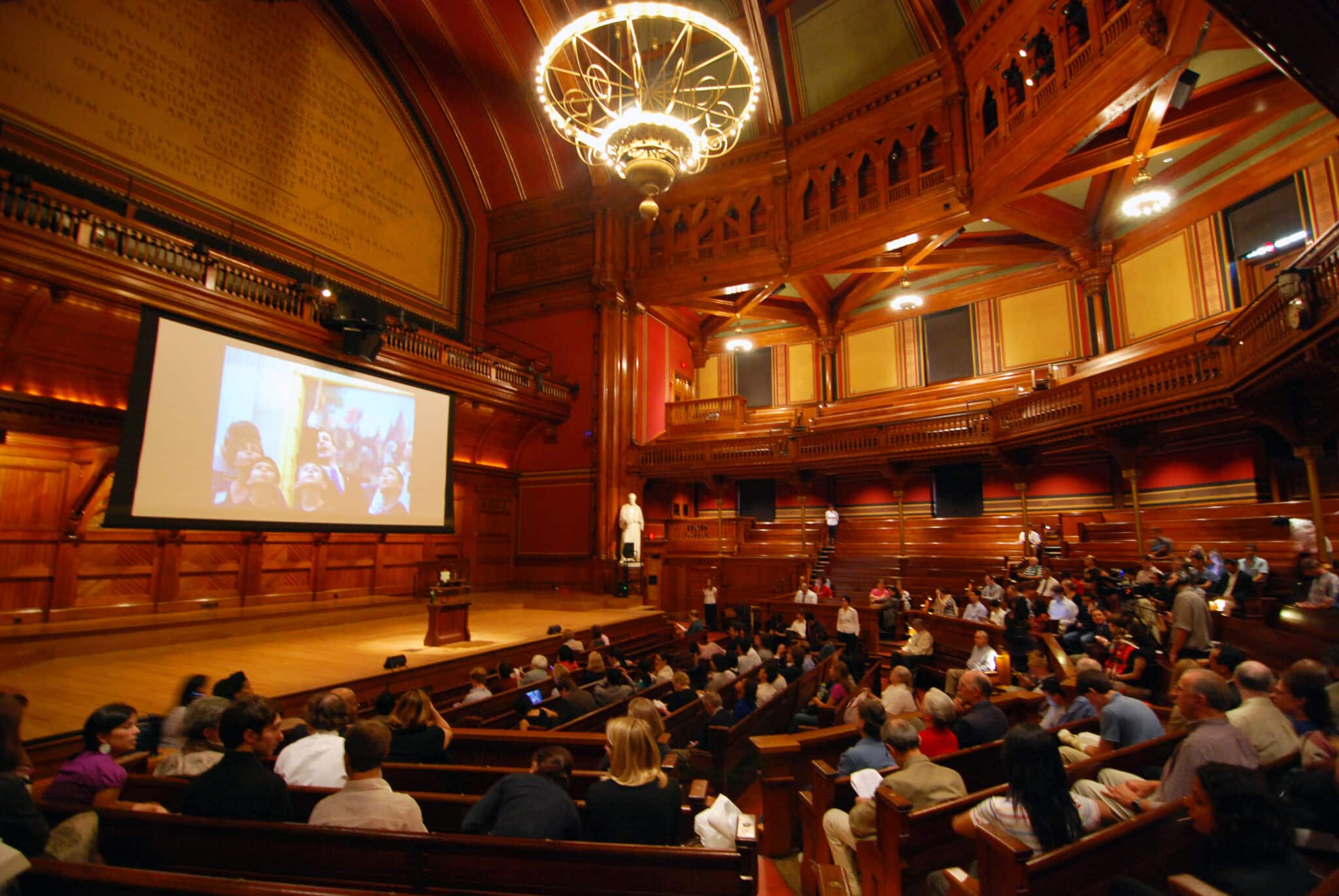Right at the beginning of this new school year, I went to a public debate held by the Cornell Forensic Society, ranked No.1 in 2013, around the topic “Have Ivy League schools done more harm than good?” As exciting and appealing the title might sound, the content of the debate was even more thought-provoking.
The three main points held by the affirmative side are: (1) An elite Ivy League education means to assimilate students to pro-business, pro-technology, and pro-professional career paths, instead of encouraging students to pursue their own respective passions. (2) Students in Ivy League care so much about the grades on their resumes that they would rather take easy-A classes than taking the ones that are really intellectually inspiring for them. (3) Students from Ivy League schools usually possess a sense of loftiness, and believe that they are the best in the world and that they have the potential to change the world in the ways they want.
I disagree in these three points.
The atmospheres in different universities are distinct–some are more focused on practical training and learning, while some stress diversity. I am lucky to be a Cornell student because Cornell stresses diversity so much, in terms of fields of study, ethnicities, values, and so on. Thus I am able to pursue my academic interests in psychology, economics, international relations, law, and many others at the same time. We have seven undergraduate colleges, all of which are pioneers in their respective fields. This special feature of Cornell has enabled me to be exposed to events and classes across a wide range of topics, satisfying my unrelenting craving for knowledge. Having a well-built reputation has also entitled Ivy League schools to attract and gather top students from all over the world, thus offering the best combination of student population possible. For me, a student passionate in international and intercultural communication, where else would I want to be if I want to meet the best people in almost all fields I could think of? Therefore, contrary to the argument that Ivy League education limits students to certain career fields, it actually is a cradle for people with divergent interests to meet like-minded counterparts and grow sturdily together. Believe me, when some students are busy rushing for business fraternity, some are pulling an all-nighter in archi-studio and are actually ENJOYING it.
An Ivy League education gives me the option to choose my own life path during the best four years of my life. Granted, some people take easy classes like “Intro to Oceanography”(infamous in Cornell due to its reputed easy-A) just to get a high grade, but for me personally, I am taking it (to be honest) because am really fascinated by the subject! Almost all of my favorite cities are adjacent to the sea and I have always wanted to explore all that ocean has to offer. At the same time, a relatively easy class also spares me of some free time to pursue other interests. I am involved in five clubs right now in addition to other personal commitments, so a class that has a lighter workload enables me to arrange my time proactively and gives me the freedom to balance my academic and extracurricular lives. That is why I argue that a diverse and huge Ivy School like Cornell has done a great job in offering opportunities as well as freedom than a less prestigious college does.
As for the third point, I would prefer to describe the “loftiness” as a kind of “idealism”, meaning that I wish to change the world as I have seen the problem of it, but not ignoring the opinions and advice from other people. As a student coming from a stiff Chinese education system to a liberal Ivy League school, I have experienced the discrepancy in the ways people perceive and recognize other people’ value and success. During my school years in China, school grade is one of, if not the, most vital factors in determining a person’s success. However, it is a complete different story in America as I perceive it. There is no one golden standard in judging a person’s success: one can succeed in many ways, whether in public service, debate, sports, or in arts, cooking, and designing. Although grade is still essential, people seldom use it as a tool to know people. The phrases I hear most during introductions are “what is your passion?” “what do you do for fun?”, instead of “what is your GPA?” So I believe that people in top universities are self-aware, if not humble, because they know that everyone around them is at least stronger than they are in one way, and there are always more to learn from each other.
Personally, I do love my school, the place where I am the painter of my life path, where I could find people who would love to open up a brand new club with me, where I can always find unexpected virtues from other people. It feels great to BE HERE AT CORNELL.


